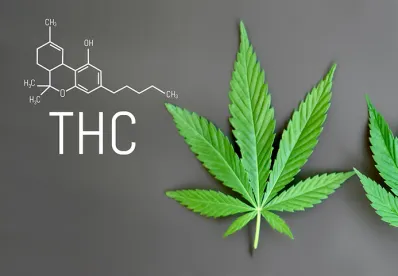California’s ever-expanding regulation of consumer products is now focusing on delta-9-tetrahydrocannabinol (“THC”). THC has been added to the Proposition 65 list, which will likely impact companies that manufacture or sell cannabidiol (“CBD”) and marijuana products. Effective Jan. 3, 2020, Proposition 65 lists cannabis (marijuana) smoke (“cannabis smoke”) and THC as reproductive toxicants.
Proposition 65 is a law requiring that companies provide cancer and/or reproductive harm warnings for any of approximately 900 listed substances – view the full Proposition 65 list here. Enforcement of the warning requirement begins one year after a new listing; accordingly, businesses will not be subject to enforcement actions for cannabis smoke (as a reproductive toxicant) or THC until Jan. 3, 2021. Notwithstanding the one-year grace period, companies should not ignore this issue until 2021. Packaging may need to be updated, and product formulations evaluated, so businesses should immediately take steps to assess whether their products will remain compliant with Proposition 65 in light of these new listings.
The listing of THC will likely impact businesses more than the listing of cannabis smoke as a reproductive toxicant. Why? Cannabis smoke has been listed as a carcinogen under Proposition 65 for over a decade. For businesses distributing cannabis products that are smoked, the new cannabis smoke listing means existing Proposition 65 warnings may only need to be updated to reference reproductive toxicity in addition to cancer.
However, THC has not been listed in any capacity until now. The listing of THC will impact a broader range of products under Proposition 65. Most significantly, CBD products applied topically or ingested may be subject to Proposition 65 warning requirements. While the 2018 Farm Bill exempts CBD products with 0.3% or less THC from the definition of “marijuana” under the Federal Controlled Substances Act, federal law does not directly apply to Proposition 65. As a result, CBD companies relying on the federal THC standard may still be subject to Proposition 65, because Proposition 65 does not currently recognize a THC safe harbor exposure level. Thus, any detectable level of THC could subject a company to Proposition 65 enforcement. Moreover, cannabis products that are not smoked, such as edibles and vape cartridges, will also potentially be required to provide a Proposition 65 warning for THC. Companies that manufacture or distribute CBD products or cannabis products that are not smoked would be wise to assess their products for compliance now to minimize the risk of facing future bounty hunter private enforcement actions under Proposition 65.




 />i
/>i

